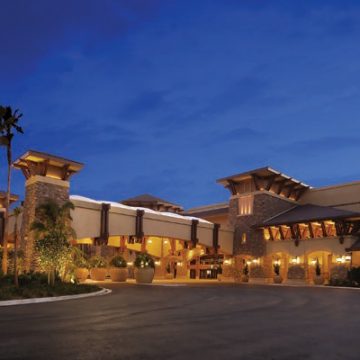
California’s online poker legislation might be one step closer to being passed in the state legislature, though it is not good news for PokerStars. One of the key tribal casino operators in the state pulled out of a coalition which has championed PokerStars’ inclusion in California iPoker the last few years.
Since 2014, the San Manuel Band of Mission Indians has been a part of a coalition who backed pro-PokerStars legislation in the California State Legislature.
The other members were the Morongo Band of Mission Indians, along with three Los Angeles area private poker clubs: The Bicycle Casino, Commerce Casino, and Hawaiian Gardens.
San Manuel Withdraws PokerStars Support
On Wednesday, the San Munuel Indians said they were pulling out of the coalition. The San Manuel’s leaders said the 6-year debate for the legalization of California online poker has been costly. The tribe wants to focus on other issues.
The question of PokerStars’ inclusion or exclusion from a legal California online poker industry might be the key stumbling block in the legislative process. A legislative stalemate over bad actor clauses has derailed several previous online poker bills.
Anti-PokerStars Tribal Coalition
The San Manuel and Morongo tribes represent a small minority of the state’s tribal gaming interests. The Pechanga Band of Luiseno Indians and the Agua Caliente Band of Cahuilla Indians lead a much larger coalition of tribes who want PokerStars barred from California’s online gambling niche.
What Is a Bad Actor in the Gambling Industry?
Those tribes have been able to keep any legislation from passing that would allow PokerStars into California. They believe the world’s largest poker website is a “Bad Actor”, which in this context means PokerStars accepted American gamblers after the UIGEA anti-gambling law went into effect on the last day of 2006.
From January 1, 2007 to April 14, 2011, PokerStars accepted US based players in violation of the US federal law. On April 15, 2011, the U.S. Justice Department seized the domains of PokerStars, FullTilt Poker, and Absolute Poker and indicted 13 of those companies’ executives. The Justice Department argued that PokerStars conspired with small-time US banks to hide the fact that American gamblers were making bank transactions using poker funds.
Eventually, PokerStars paid over $730 million to end its prosecution by the U.S. Justice Department. One of its executives remains indicted to this day, though that executive and his son sold the company to Montreal-based Amaya Gaming, in the hopes new ownership would receive licensing for the regulated poker market in the United States — after such gaming was approved over a half-year after the Black Friday actions. New Jersey’s Division of Gaming Enforcement eventually approved PokerStars for its regulated gaming market; it partners with Morris Bailey’s Resorts Casino on a website.
California Poker Partnerships with PokerStars
That was the plan of the San Manuel Band of Mission Indians, too. Along with its coalition partners, the San Manuel planned to partner with PokerStars. Since PokerStars is (by far) the world’s largest online poker community, that would have conferred on the coalition partners a massive advantage. PokerStars generates 70% of the world’s online poker revenues, because their software is popular, their rake is lower than most competitors, and their player liquidity puts everyone else to shame.
The Pechanga, Agua Caliente, and other anti-PokerStars tribes knew that. They know, if PokerStars is allowed to operate in the California market, it likely would control about 70% of the California gaming revenues. The tribes have little incentive or no incentive to allow PokerStars in the state, so they have worked overtime to assure that never happens.
Pechanga and Agua Caliente’s Political Influence
The anti-PokerStars coalition’s ploy has worked. Pechanga is the state’s largest casino. The tribe’s gaming site, Pechanga.net, is a visible and trust online gambling news source. The Pechanga and their allies have the political clout to bar PokerStars from California, a fact which has been proven time and again.
Until now, PokerStars’ partners might not have the political clout to change the law, but they do have the influence to keep online poker legislation from being passed if it do not contains















